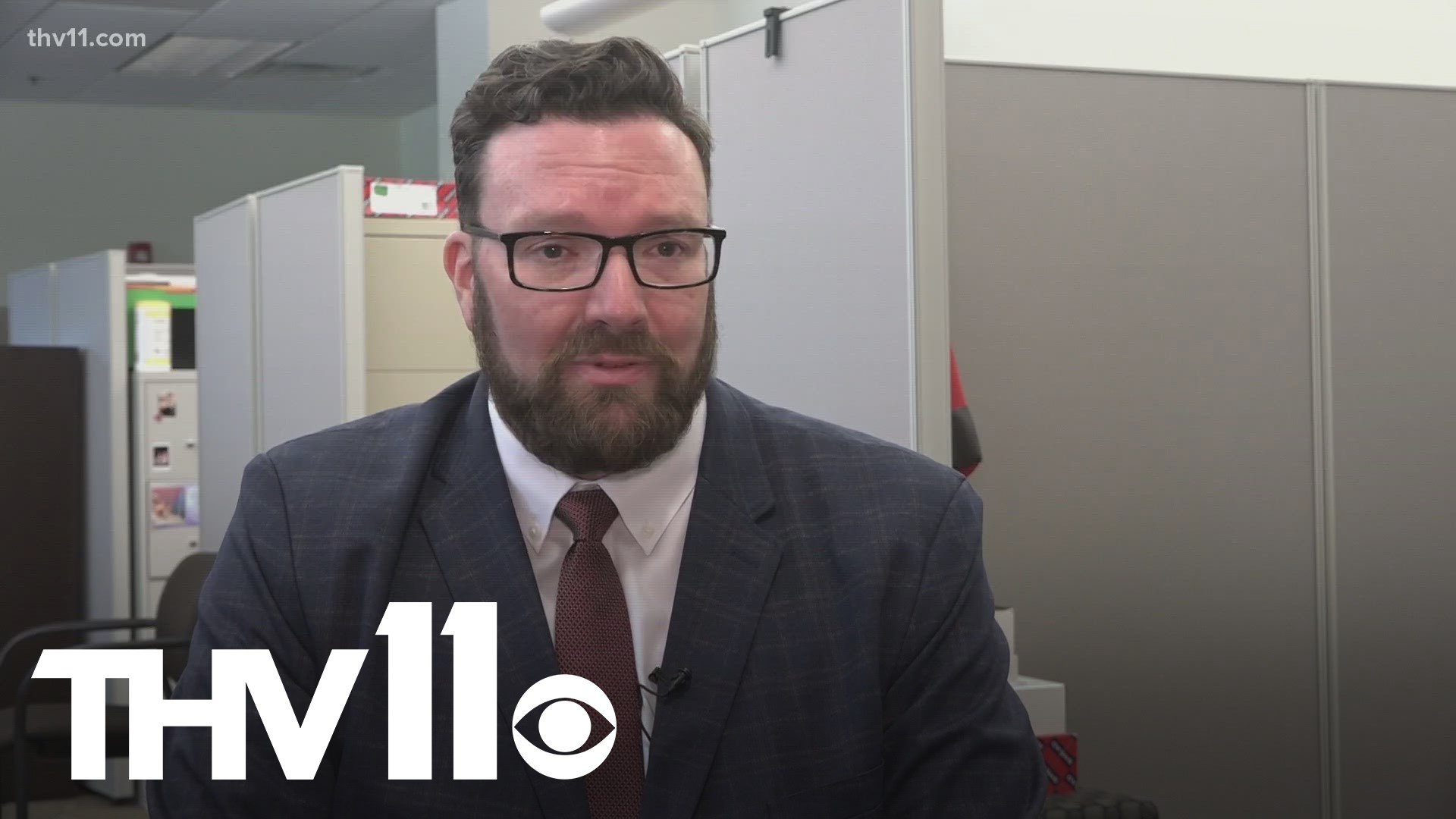LITTLE ROCK, Ark. — On March 31, a powerful EF3 tornado ripped through parts of Central Arkansas. For Yolanda Spencer, the 22 seconds of violent winds turned into 22 days of insurance frustration.
"It was as close as perfect as possible," is how the native of south Arkansas described her dream home in the Walnut Valley neighborhood in West Little Rock.
"Then in a matter of 22 seconds, everything changed," Spencer said.
Her gray ranch-style home is visible from I-430 and is part of the tableau that thousands of drivers see attesting to the damage left by the tornado.
Three months later, the area still looks as scarred as it did that day when Spencer and her neighbors emerged from wherever they took refuge.
"I just smelled an immense amount of wood. It was just like fresh-cut wood," she said. "I climbed out just frantic. I mean, we didn't know what to do. We were just, you know, everybody was out in the streets and we were just trying to figure out what to do and what's next."
Despite a flood of aid and assistance, "what's next" has varied greatly for victims, and for many driven to frustration in the weeks and months since, insurance problems have often been the cause.
Some, like Spencer, discovered the protection they bought or the company they bought it from, did not meet their expectations.
"My neighbors were being housed by their insurance company that night, " she said. "I had a place to stay, but the next day, I realized I should be able to file a claim as well. the first [insurance] person I spoke to said 'I'm not the person you need to speak to. You need to speak to someone else.' And that went on for probably about four or five days."
Spencer ended up at the disaster relief center a short distance away from her devastated neighborhood. Unable to reach anyone at her small insurance company, volunteers directed her to the Consumer Services Division of the Arkansas Insurance Department.
"The storm season is very active this year, and so usually we're getting a lot of calls," said Russ Galbraith, the chief deputy commissioner, who agreed to an interview in the middle of a normally busy office. "We've actually stopped the calls for right now for this, but somebody is upstairs answering those as we speak."
The active storm season has led to vast amounts already paid out halfway through the year. When there are disputes, Galbraith is the one that oversees the investigators who field complaints from people like Spence, serving as umpires over the huge underwriting industry.
"The insurance industry has responded very well to this particular catastrophe for Arkansans," he said. "From what we can tell, because when you have a relatively light number of complaints versus the amount of claims, it just shows that people are, for the most part getting taken care of."
As of mid-June, there have been more than 6,000 claims filed and $250,000,000 paid out.
As for complaints, Spencer's is one of just 14 that have been investigated and closed since the end of March.
Approximately 35 more are still open.
The division provided us with the names of people with closed cases, and that's how we found Spencer. Other people we reached on that list spoke of disagreements over how much damage would be paid for or arguments over whether damage came from the tornado.
Galbraith explained how that's typical of the calls that come into Consumer Services.
"Sometimes it's policy issues or maybe a consumer doesn't necessarily understand why something is not being covered," he said. "And the insurance company has told them that certain issues not going to be covered and then it comes down to just understanding the policy."
Though sometimes a call from the state is needed to get the process started. We heard that complaint from two people on the list, including Spencer.
In her case an adjustor eventually made contact, and that's when she realized her policy just didn't have some of the features offered by larger providers.
We contacted that company and they said they don't comment on specific customer policies. We are not going to name them since they and Spencer came to an agreement, though she has changed insurers.
Spencer and Galbraith say this is an example of getting what you paid for, but the commissioner describes events like this as having a long tail. Problems and disputes will continue to pop up, and even if a policyholder may have regrets over what they bought, Consumer Services can still offer help.
"We're talking to people in their maybe their worst time when they've had a loss," Galbraith said. "We're here to be a conduit so that if they are having issues with a company, whether it's miscommunication or misunderstanding or whatever, we're able to kind of bridge that gap and hopefully come to some type of resolution."
Spencer also echoed that message and hopes people like some of her neighbors who may be overwhelmed get to hear it.
She also wants to share what she's learned.
"Just be proactive, and be more involved in choosing your policy, as well as your policyholder, and also what your policy entails," she said. "Because in certain situations, it's only going to go by the black and white."
To file a complaint or to read pamphlets and advisories on what to do before and after a disaster, head to the Consumer Services page of the Arkansas Insurance Division, or call (800) 852-5494 or (501) 371-2640.

